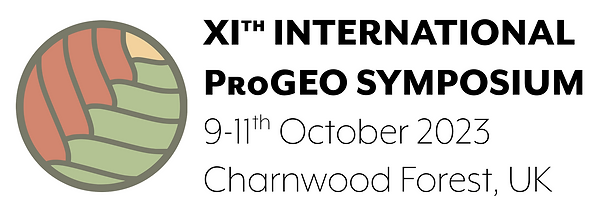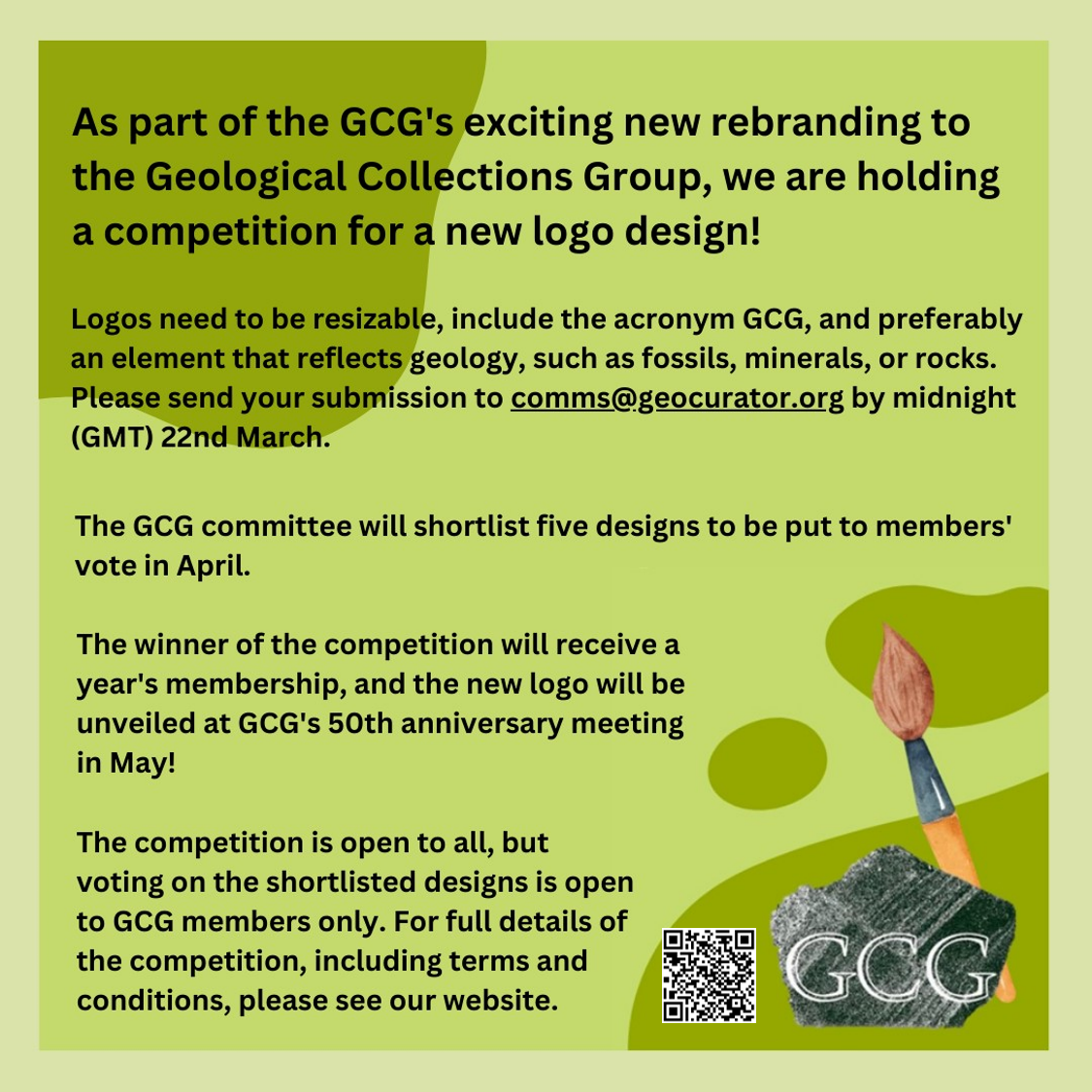
Entries to:
Terms and Conditions: Logo competition T & C
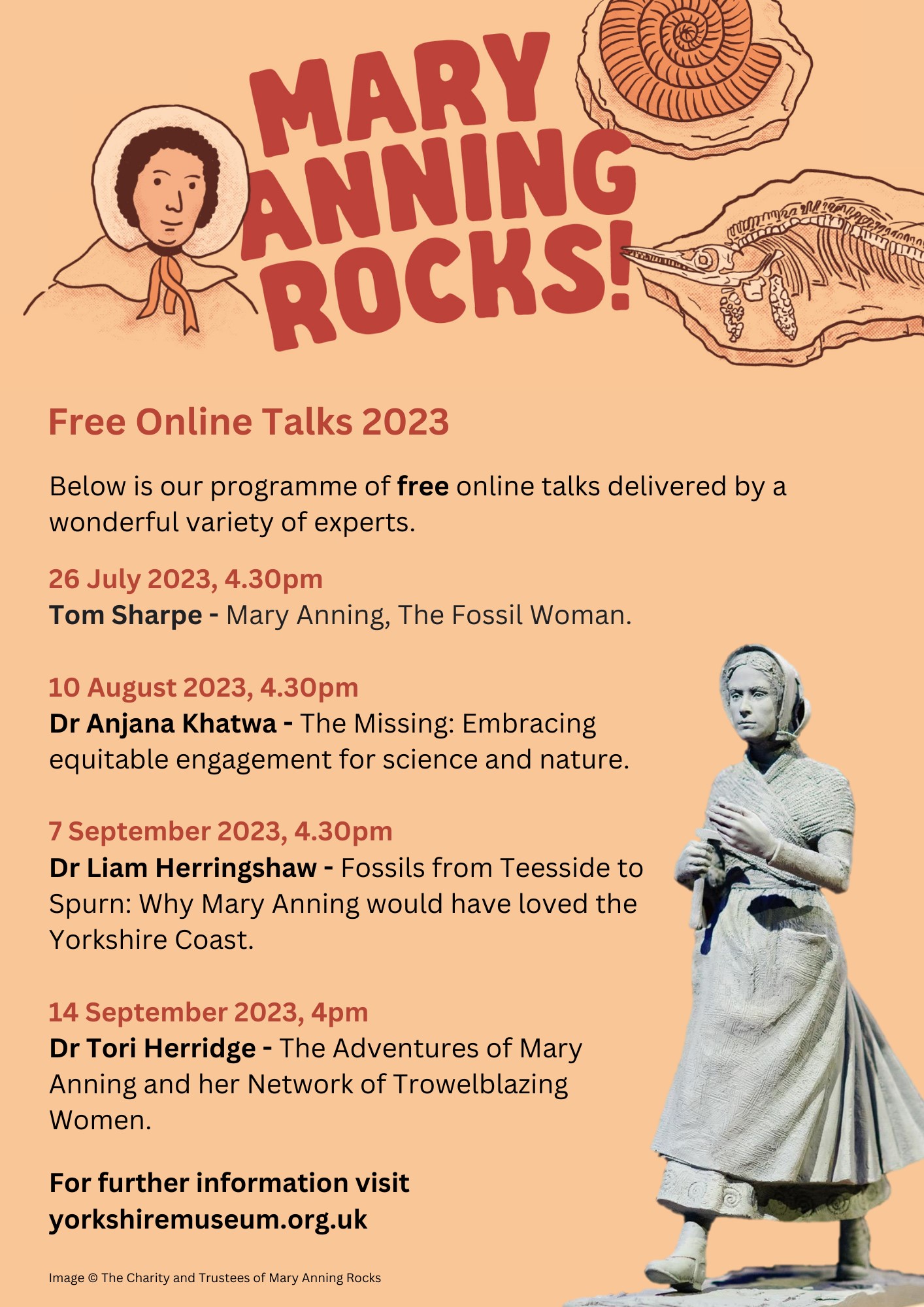 GCG member (and former chair) Sarah King, writes from York:
GCG member (and former chair) Sarah King, writes from York:
This summer, there will be a series of free online talks to accompany the Yorkshire Museum’s ‘Mary Anning Rocks’ exhibition, which is now open. These will be delivered by a range of experts on themes connected with Mary Anning, palaeontology, and ground-breaking women in science.
Each talk will be broadcast live on the Yorkshire Museum’s YouTube page, with a chance to ask questions of the speaker at the end. A link to sign up will be made available a few days before, which will be visible on the exhibition page (https://www.yorkshiremuseum.
- 26 July 2023, 4.30pm – Tom Sharpe: Mary Anning, The Fossil Woman
- 10 August 2023, 4.30pm – Dr Anjana Khatwa: The Missing: Embracing equitable engagement for science and nature
- 7 September 2023, 4.30pm – Dr Liam Herringshaw: Fossils from Teesside to Spurn: Why Mary Anning would have loved the Yorkshire Coast
- 14 September 2023, 4pm – Dr Tori Herridge: The Adventures of Mary Anning and her Network of Trowelblazing Women
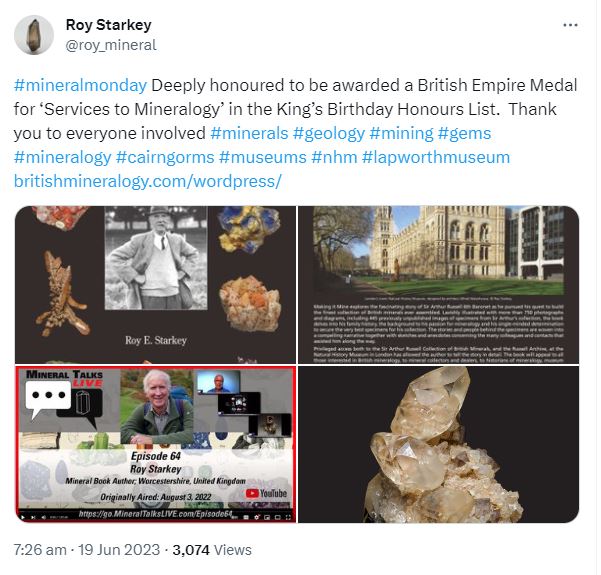 We were thrilled to learn that longstanding GCG member Roy Starkey has been awarded a British Empire Medal for ‘Services to Mineralogy’ in the King’s Birthday Honours List. Congratulations Roy!
We were thrilled to learn that longstanding GCG member Roy Starkey has been awarded a British Empire Medal for ‘Services to Mineralogy’ in the King’s Birthday Honours List. Congratulations Roy!
We have enjoyed many of his talks at our AGMs over the past few years - if you are logged into this website as a GCG member, you can catch-up on some of the recordings, for instance at our 2022 AGM here or our 2021 AGM here.
You can also find Roy on Twitter at https://twitter.com/roy_mineral
XIth INTERNATIONAL PROGEO SYMPOSIUM
ProGEO: The International Association for the Conservation of Geological Heritage
On behalf of the Organising Committee, and the International Association for the Conservation of Geological Heritage (ProGEO), we are pleased to invite you to take part in the XIth International ProGEO Symposium. The meeting is being organised by the Charnwood Forest Geopark, and will take place in Loughborough, UK from 9th to 11th October 2023.
The symposium is an international event open to scientists, students, educators, professionals, decision-makers, and anyone involved in geoheritage and geoconservation. The meeting will promote communication and collaboration amongst attendees from all over the world, and provide a space to discuss new challenges and threats in geological conservation.
More information is at https://www.progeo2023.com/
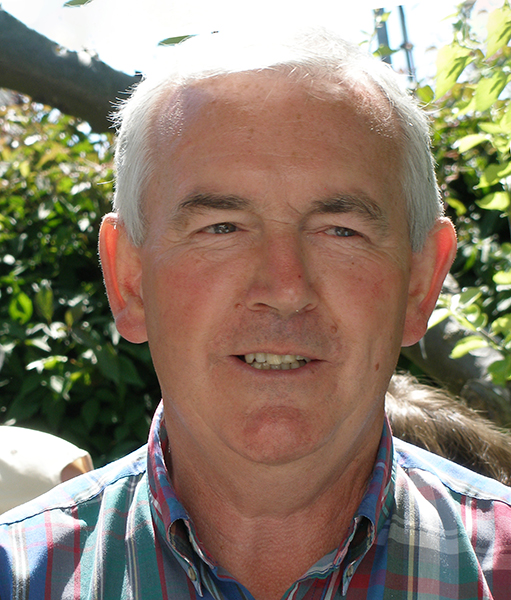 We are very sorry to bring the sad news that Professor Mike Bassett died recently after a long illness. Mike was one of the earliest members of the Geological Curators’ Group and had been a great supporter of the group throughout its history.
We are very sorry to bring the sad news that Professor Mike Bassett died recently after a long illness. Mike was one of the earliest members of the Geological Curators’ Group and had been a great supporter of the group throughout its history.
Mike gained his BSc at Emmanuel College, Cambridge and then his PhD at University College, Swansea, before joining the National Museum of Wales in October 1967 as Assistant Keeper of Geology. Ten years later he was promoted to the post of Keeper, which he held until his retirement in 2008. He was also Honorary Professor and lecturer at Cardiff University, and held many roles within the South Wales Geologists’ Association. He had served on many national and international geological committees, and was influential in establishing the five ‘Earth Science Collection Centres’ following the Earth Science Review of the late 1980s. He received a number of awards in recognition of his research and was a renowned expert on Palaeozoic brachiopods and stratigraphy, with a large number of books and papers to his name. Within the National Museum of Wales he was responsible for bringing in many major exhibitions, such as the ground-breaking Dinosaurs from China in 1986, and the award-winning Evolution of Wales exhibition. He raised the international profile of the department, creating research links with Uppsala as well as China, and was not hesitant about carrying out remote fieldwork in many far-flung countries. Many older members of GCG will have fond memories of working with him.

